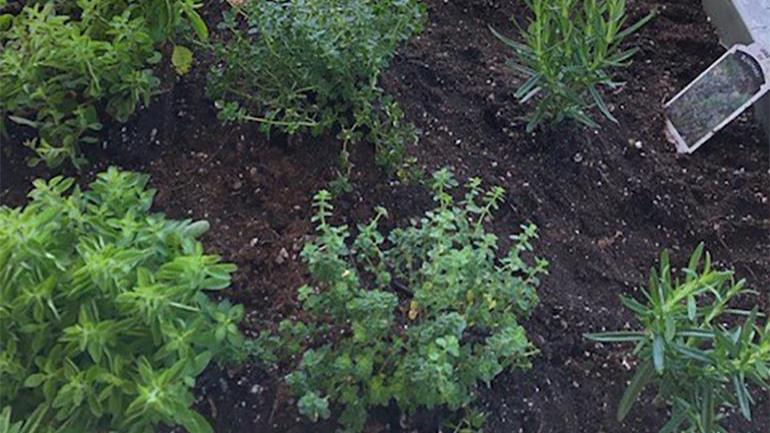
Learn how patients nurture nature and themselves with hospital-grown vegetables and herbs.
Cultivating a garden requires patience, labour and thyme. The rewards are bountiful, like quality ingredients and an overall enhanced sense of well-being for those who partake.
Elizabeth Thirsk, clinical dietitian, sought to kick-start a unique experience that allowed patients to reap the benefits they sowed in garden beds at the hospital.
After receiving funding through an Innovation Grant generously provided by the Royal Columbian Hospital Foundation, Elizabeth began the inaugural Therapeutic Gardening Program for inpatients at the Mental Health and Substance Use Wellness Centre at Royal Columbian Hospital.
Over seven months, 75 patients met monthly and participated in a wide variety of gardening tasks. From planting, to weeding, to harvesting, the patients and their green thumbs were involved in every stage of the plant life cycle.
Elizabeth then used the garden harvest in her patient cooking classes. Vegetables such as zucchini were turned into delicious muffins, and an assortment of produce was transformed into a tofu and veggie stir-fry.
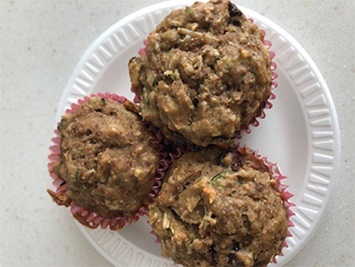 |
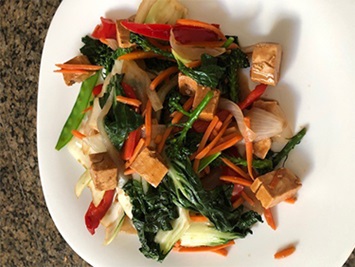 |
“As a dietitian, I was overwhelmed by the positive impact that the Therapeutic Gardening Program had on both patients and staff. To nurture and witness the garden come to life, and then use the resulting high quality, nutritious produce in our cooking groups has been one of the most rewarding and joyful experiences of my career,” reflects Elizabeth.
The garden was so successful that soon there was an over abundance of vegetables and herbs at their disposal. In stepped Elaine Chu, regional manager for Food Operations at Royal Columbian Hospital. With sustainability in mind, Elaine partnered with Thirsk to use the patient-led gardens to produce herbs that could be used for patient meals throughout the hospital.
Elaine, with awarded funds from Fraser Health’s Innovation Grant for Environmental and Sustainability, created a new salad dressing, made in-house at the hospital.
Not only is the salad dressing nutritious and delicious, but it also allowed Food Services to transition away from pre-packaged commercial salad dressing, reducing single-use packaging waste.
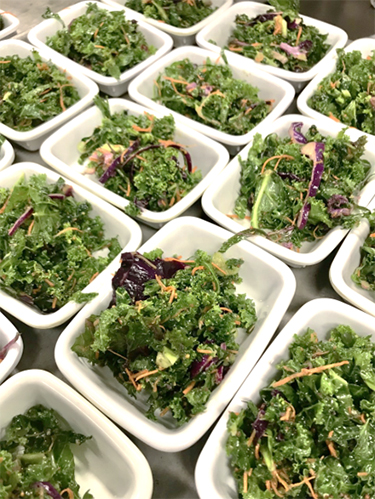 |
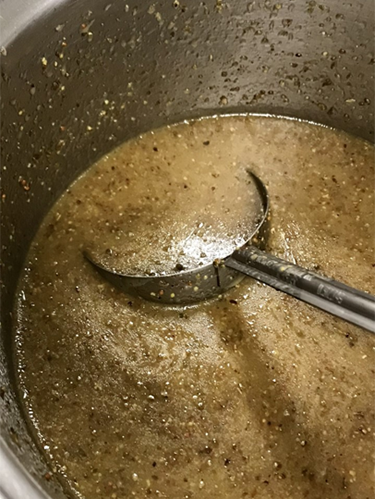 |
Elizabeth and Elaine’s collaboration improved patients meal experience by offering a better quality product with fresh, locally-sourced ingredients.
March is Nutrition Month.
